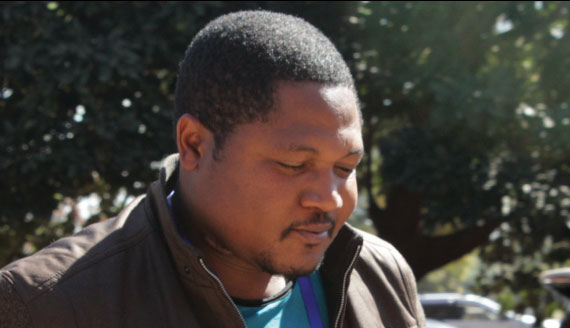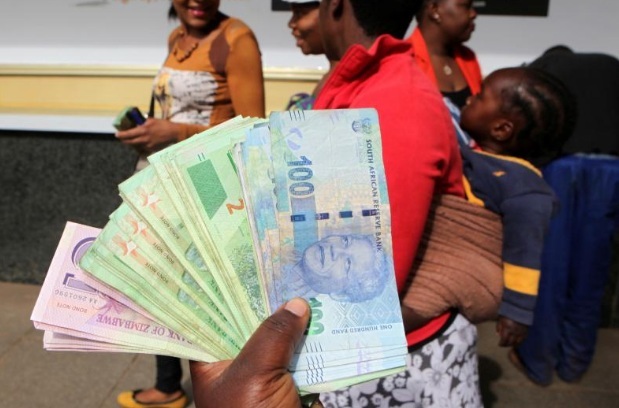Source: More parties pull out of ED talks | Daily News

HARARE – President Emmerson Mnangagwa’s plan to convene a national dialogue with small opposition parties has been dealt a body blow after at least four parties have disengaged citing a sincerity and trust deficit from the 76-year-old strongman.
Mnangagwa had initially invited many of the country’s well-known opposition figures, including those who contested him in last year’s hotly-disputed presidential election.
But opposition leader Nelson Chamisa was the first to snub Mnangagwa’s initial talks-about-talks gathering at State House because he preferred the much-talked about national dialogue to be held under the guidance of an impartial, regional convener.
Notable opposition politicians who attended that initial indaba were Thokozani Khupe, Nkosana Moyo, Lovemore Madhuku, Daniel Shumba, Noah Manyika, Elton Mangoma, Ambrose Mutinhiri, Timothy Chiguvare and Bryn Mteki.
Joice Mujuru of the People Rainbow Coalition snubbed Mnangagwa’s meeting together with Zimbabwe Partnership for Prosperity president Blessing Kasiyamhuru.
Last week, Build Zimbabwe leader Manyika and Shumba of the United Democratic Alliance (UDA) opted out of the talks saying they refuse to “sanitise a conspiracy or be part of a betrayal of the people’s expectations.”
And this week another presidential candidate, Chiguvare also opted out the talks.
This comes as under-fire Mnangagwa was touting the talks as breaking new ground in his response to the worsening crisis in Zimbabwe.
The leaders that have withdrawn claim that Mnangagwa is not sincere about an all-stakeholder dialogue, and are also demanding the inclusion of Chamisa.
In an interview with the Daily News, Shumba, a retired colonel, said: “Zimbabweans should be able to determine the category of those who are still on the table. However, we wish them well. The refusal to provide a legal framework for the negotiations renders the whole platform unconstitutional.”
The former Zanu PF Masvingo Central legislator said current efforts by Mnangagwa for dialogue are designed to hoodwink the nation into believing that there is seriousness on his part when that is not the case.
“The Constitution of Zimbabwe doesn’t provide for such a process. The absence of a willingness to legitimise the national dialogue renders it an adventure or circus. The UDA refuses to be blindfolded or used as an extension of Zanu PF,” he said.
“The nation shouldn’t expect any outcomes. The national dialogue fallacy is meant to clothe the fox in sheep’s clothes. The UDA won’t sanitise a conspiracy or be part of a betrayal of the people’s expectations. We’re not opportunists and won’t be part of a process that fortifies delinquencies at the people’s expense,” the businessman-cum-politician said.
Last week, Manyika also sent a letter to Mnangagwa indicating that he will not take part in the discussions because it was not inclusive.
“No meaningful dialogue can happen without a neutral and credible convener being agreed on to facilitate a broad and inclusive dialogue that will include trade unionists, political parties, activities, civic groups and all stakeholders to ensure that the views and interests of all Zimbabweans are represented.
“It is also my position that any dialogue that does not include the MDC Alliance and other critical stakeholders will not pass the credibility test locally and globally,” Manyika’s missive to the president said.
Kasiyamhuru said he did not attend the meeting because he was no longer in politics.
“I am not a politician,” said Kasiyamhuru curtly when the Daily News asked him why he was not attending the national dialogue meetings.
Respected University of Zimbabwe political science lecturer Eldred Masunungure said the dialogue was bound to fail because it did not include one of the key players, Chamisa.
“It is pretty obvious for anyone who follows local politics that anything that excludes the two titans, that is Mnangagwa and Chamisa is just kindergarten play. For any dialogue to take place, you need those two.
“Those are the two actors that really matter, the others are just spectators. Whatever happens, the two have to be combined.
“Now, they must come up with a third platform, probably a convener from the region. The key actors are two and any process that excludes those two is a charade. Even if those who have left were to remain, the outcome would have remained a nullity because Chamisa is not there,” Masunungure said.
Mangoma, who leads the Coalition for Democrats (Code), told the Daily News that the talks are genuine and will not be derailed because some players have decided to pull out.
“From a dialogue point of view, it’s so far so good. The people who are involved, I think they are going to determine the convener and also come with an agenda.
“The political group is just one among many. We shall make it broader and including other players, including the civil society and churches. I don’t believe that any person should hold the nation at ransom, the idea is to make it an inclusive dialogue,” Mangoma told this publication.
Asked if the participants in the ongoing dialogue are getting any payment from Mnangagwa, Mangoma said “not yet”.
“No one is being given money so far but in a framework that we have come up with, those who are travelling, there is need for out-of-pocket allowances, something for them, when they come to Harare,” Mangoma explained.
Frantic efforts to get a comment from Mnangagwa’s spokesperson George Charamba were futile.
The post More parties pull out of ED talks appeared first on Zimbabwe Situation.



